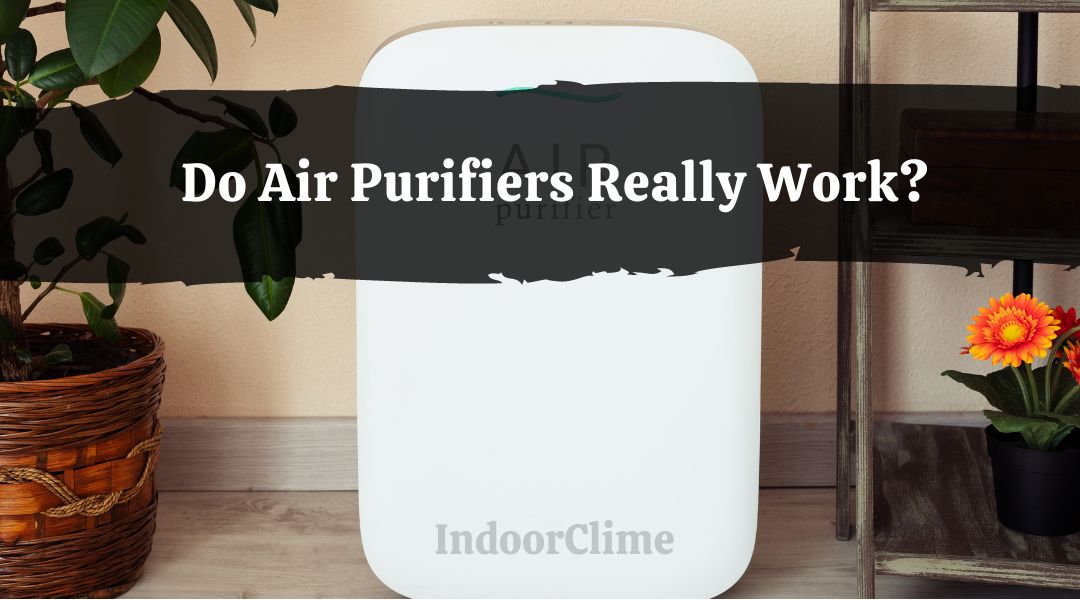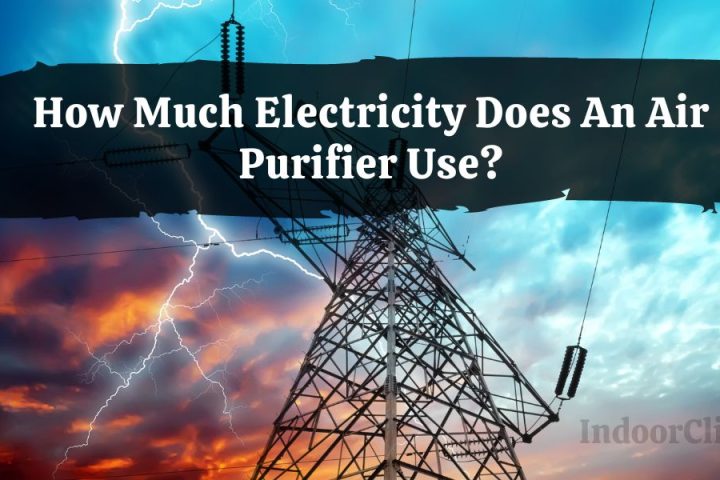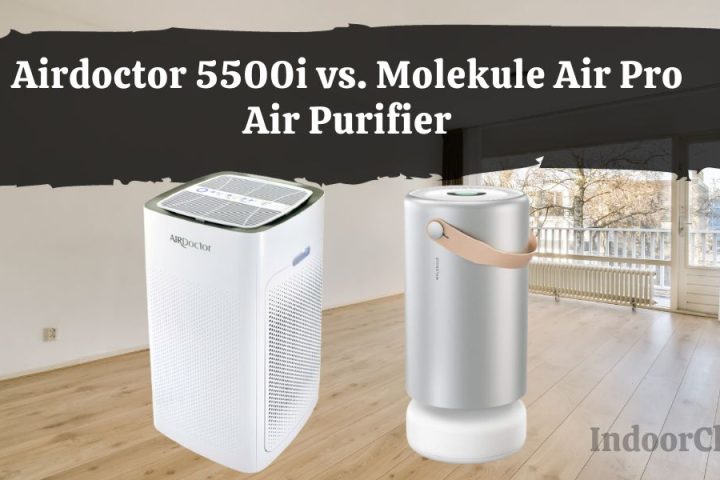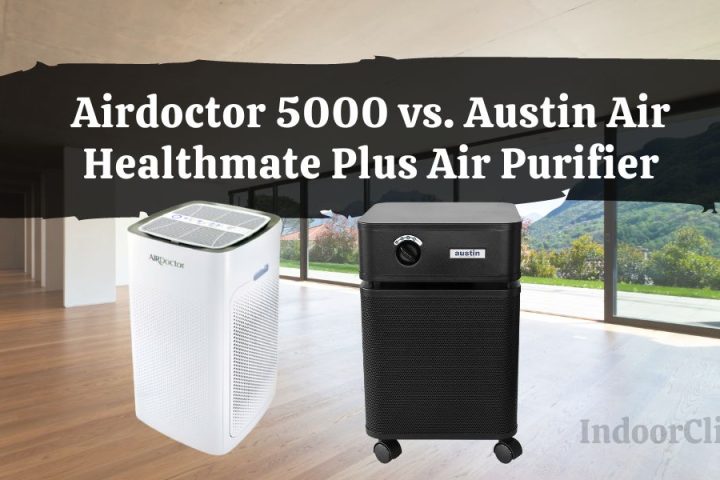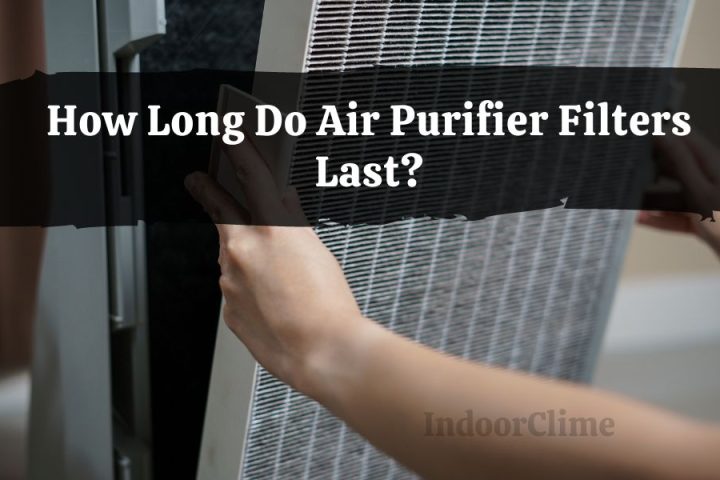Did you know those airborne particulate contaminants are a significant source of indoor air pollution?
The World Health Organization states indoor air contains up to five times more pollutants than outdoor air. In addition, polluted indoor air is a leading trigger for allergies and asthma.
Are Air Purifiers effective in eliminating or reducing air pollution? Unfortunately, many people don’t know how effective air purifiers are.
It’s time to change that perception and understand the facts. You deserve to be informed to make the right choice for your family.
Air purifiers are some of the most clever ways to clean and improve air quality. They capture contaminants in the air, such as allergens and pollutants, so that you can breathe easier.
How Do Air Purifiers Work?
To understand how Air Purifiers work, it’s essential to have a basic understanding of what makes the air in your house dirty. There are two main categories of contaminants: Particulates and Gases.
Particulates are tiny particles suspended in the air that you can see if there’s enough light. These can be as small as 0.01 microns—about 1/7000th the width of a human hair.
Gases include smoke, mold spores, carbon monoxide, and volatile organic compounds (VOCs). It is measured in parts per million (ppm), which is how many gas molecules are found in a million air molecules.
An Air Purifier sucks air into a chamber and filters it through a series of screens to purify it. The screens remove larger particles from the air, and the cleaner releases them back into the room.
Are Air Purifiers Effective?
The effectiveness of Air Purifiers is widely disputed, but a growing body of evidence supports the claim that they are effective in many cases.
Researchers from the University of Stuttgart attempted to determine how effective air purifiers are.
First, they measured bacteria levels in homes without air purifiers and then again after introducing an air purifier. The results were surprising: there was a dramatic decrease in airborne bacteria after only one week.
The CDC recommends using an Air Purifier at home to prevent the spread of colds and other respiratory illnesses.
There are several types of airborne bacteria, but most people are familiar with Staphylococcus Aureus and Streptococcus Viridans, which can cause pneumonia and strep throat.
In addition, bacteria are found on doorknobs, pillows, toys, phones, and even keyboards.
What Won’t Air Purifiers Work For?
Air Purifiers are a stylish and modern way to remove pollutants from the air, but they won’t work for every situation.
Here are some cases where an air purifier will not be a good fit:
- When you need to eliminate smells caused by pets or smoking
- When you have a large area that needs to be cleaned
- When you need to stop the smell of damp earth after spring rains
- When you have mold in your basement that needs to be removed
- They do not work to remove gases from the air
- Air purifiers won’t keep you from getting sick if you have a cold
Do Air Purifiers Really Work?
With all of the news about air pollution, you’re probably wondering: Can an Air Purifier make a difference?
The short answer is yes. An Air Purifier can help enhance indoor air quality by removing common pollutants like pet dander and allergens from the air you breathe.
Air Purifiers remove bacteria from the air by destroying them. But if the device isn’t cleaned regularly, it can accumulate bacteria.
It can lead to respiratory problems in people who use the machine frequently and spread dangerous bacteria throughout the home.
In addition, people who experience severe allergies should steer clear of Air Purifiers unless they can maintain them properly.
Are Air Purifiers A Waste Of Money?
Some people think buying an Air Purifier is a waste of money. It can be pretty expensive. There are minor ways to look at how much the equipment costs you.
First, there’s the cost to your health. For example, suppose you have allergies or asthma or have family members with one of these conditions. In that case, an Air Purifier can keep your home healthy and safe and save you tons on doctor’s bills by preventing admissions to the emergency room.
Second, there’s the convenience factor. Pollution is dealt with if you live in a great city like New York or Londo. An Air Purifier can help keep your nose unblocked by pollution so that you can sleep well at night, and if you’re running late for work in the morning, it can mean the contrast between being on time and being late due to congestion caused by pollution.
Third, there’s the fact that some places require Air Purifiers for certain types of businesses. For example, restaurants must have them in some areas, daycare centers, and hospitals.
Do Air Purifiers Work For Covid?

The World Health Organization has recommended using air purifiers with activated carbon filters to reduce the spread of Sars-Cov2. The high temperatures in the filters kill the virus, and the carbon filter absorbs airborne particles that can carry the virus.
Sars-Cov2 is a coronavirus strain that can be transmitted from person to person by coughing, sneezing, and other forms of close contact.
It has a mortality rate of around 40%. However, air purifiers can reduce the number of viruses in an enclosed space by 85%.
Air purifiers work best with standard medical procedures for quarantine and treatment, including face masks, gloves, and gowns made from impermeable material.
What Are The Disadvantages Of Air Purifiers?
Air Purifiers are a distinguished way to remove airborne allergens and chemical irritants from your home or office. However, like all machines, they are not perfect. Here are some disadvantages to Air Purifiers that you should be aware of:
Energy consumption: Air purifiers take up significant electrical energy to provide filtration that effectively removes pollutants from the air. Therefore, it’s essential to make sure you purchase one with an Energy Star rating.
Odor control: Some Air Purifiers, such as ionizers and ozone generators, can produce odors in the area where they are used. This can exacerbate your symptoms if you have a case such as asthma or allergies.
Maintenance: Air Purifiers require regular maintenance to maintain their effectiveness, including changing filters and cleaning components that come into contact with the air. Some models will even tell you when it’s time for maintenance, but not all do.

